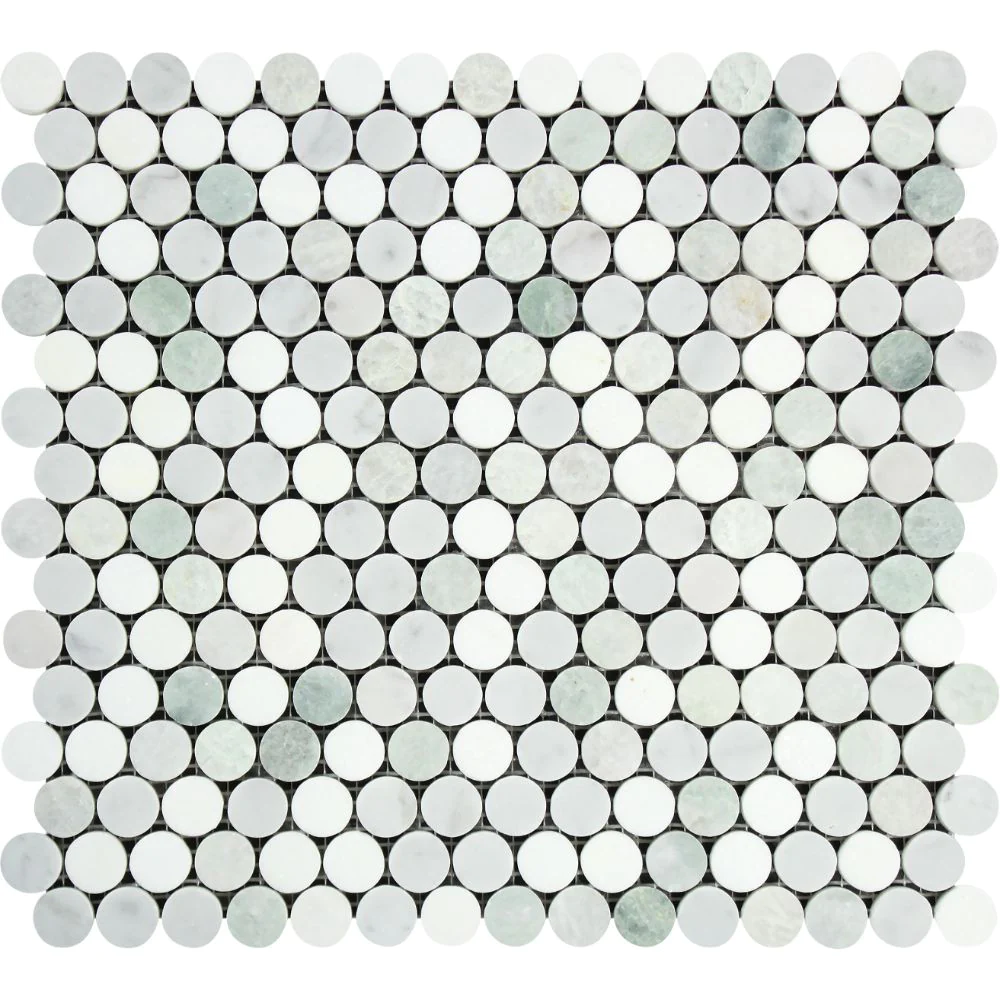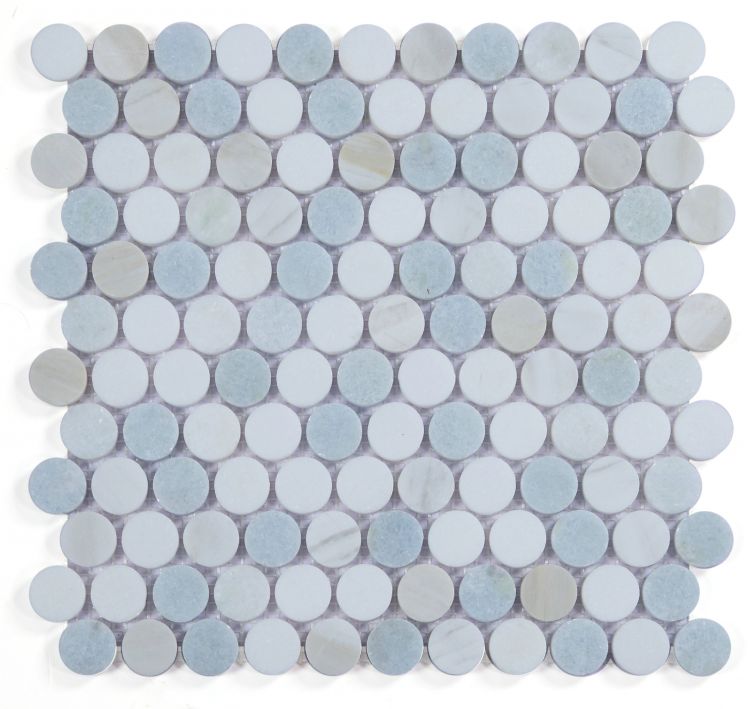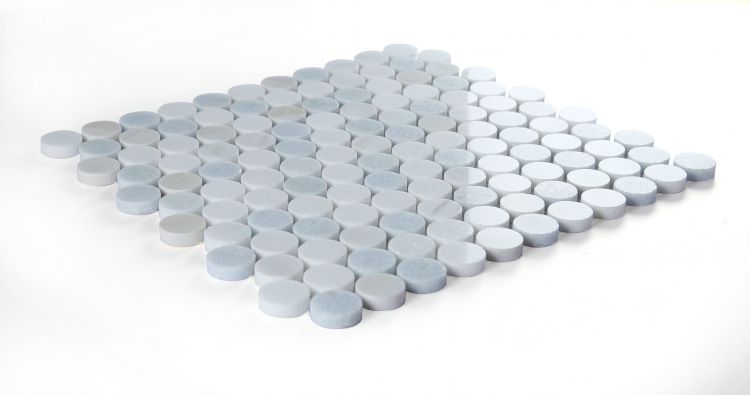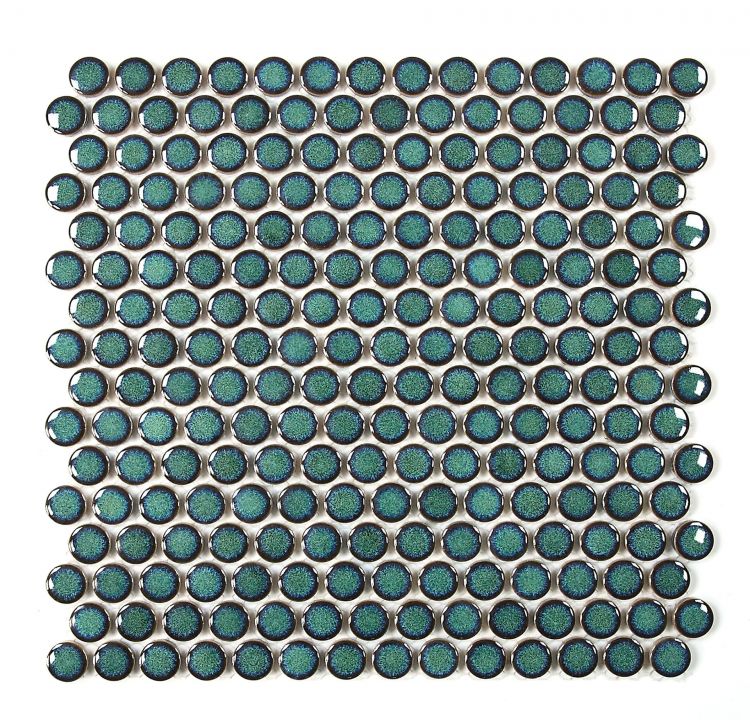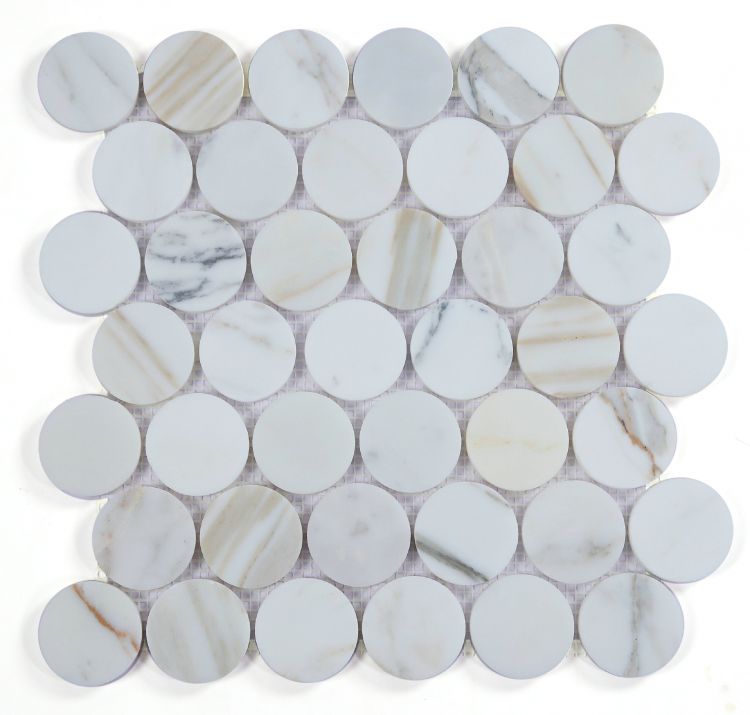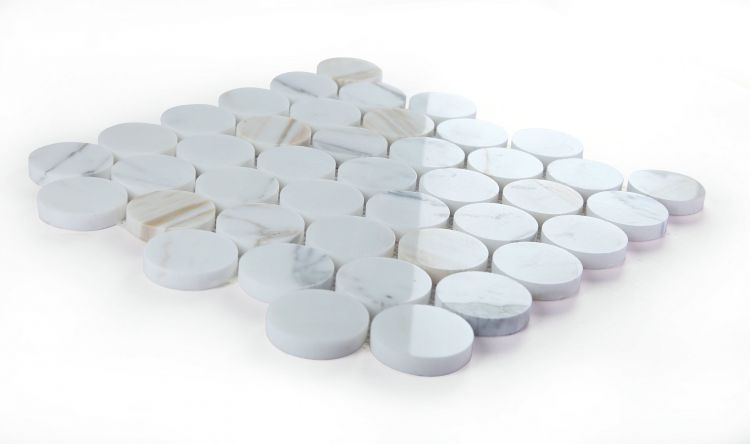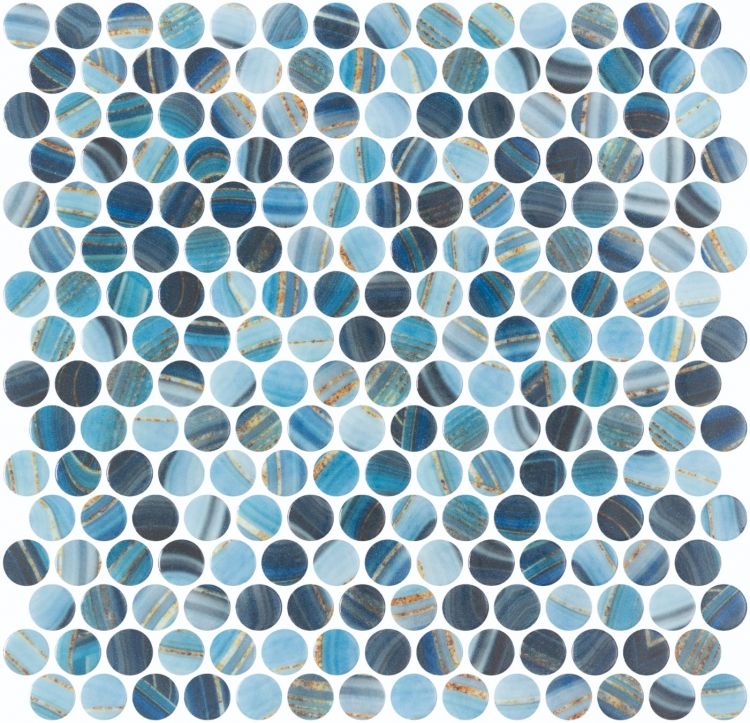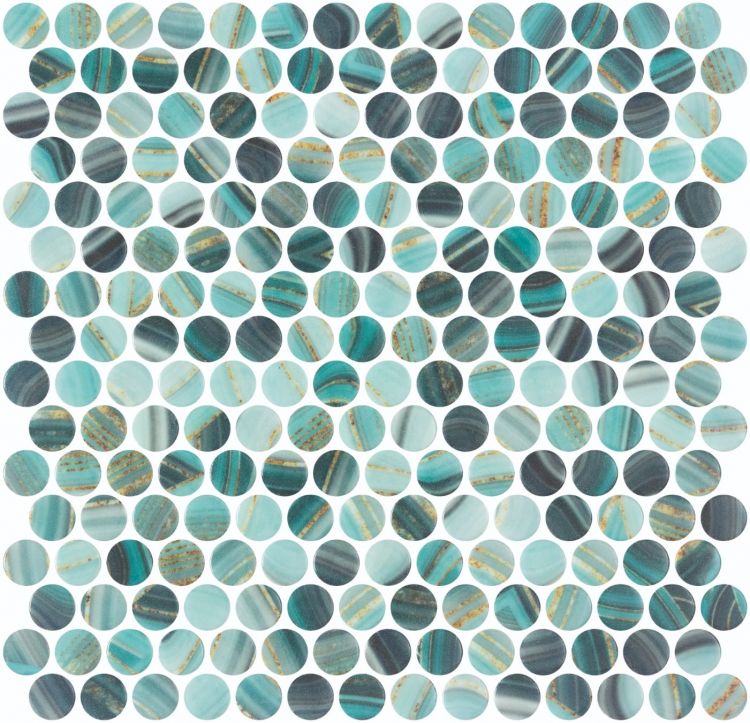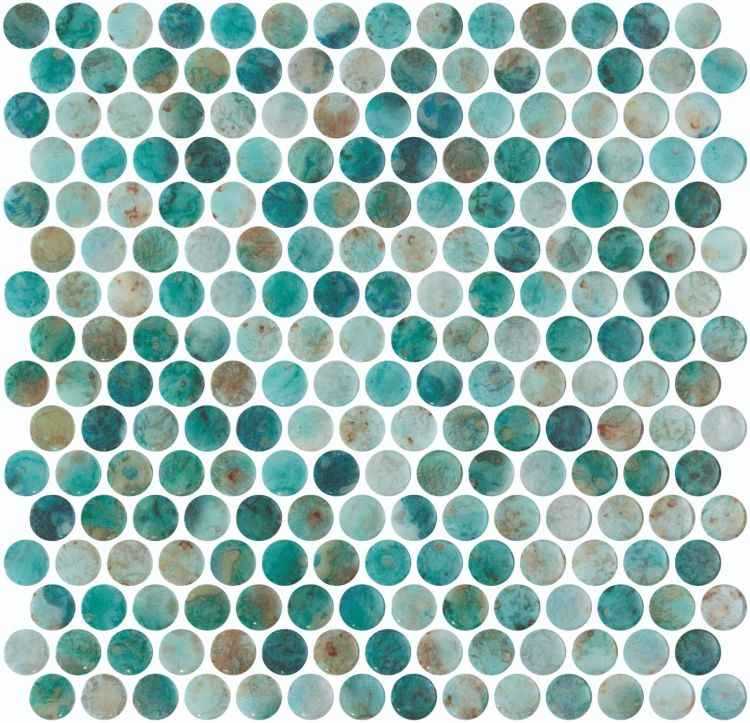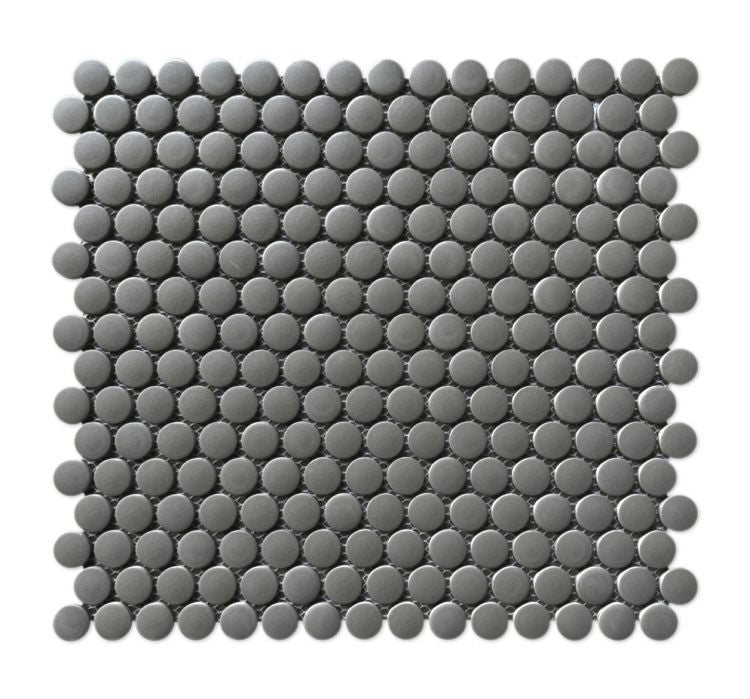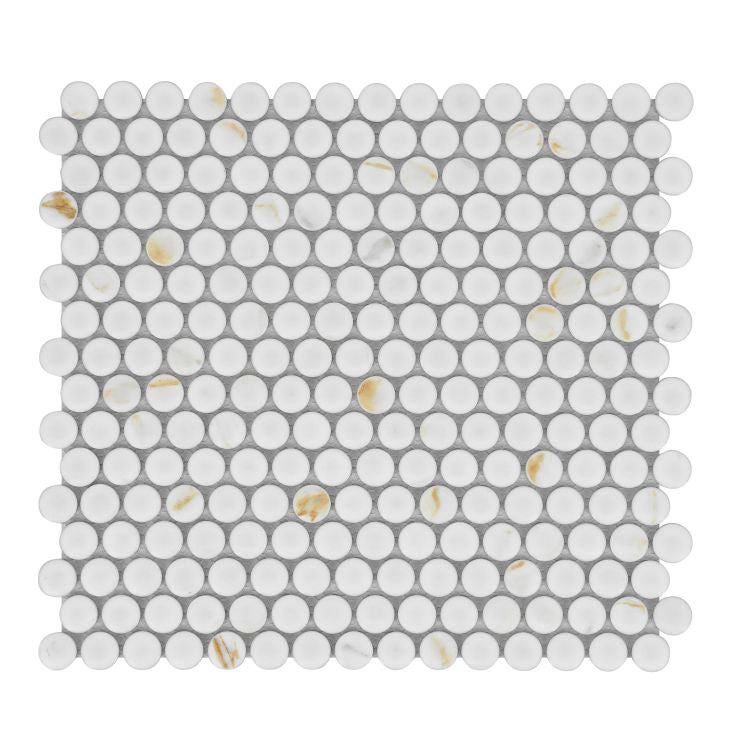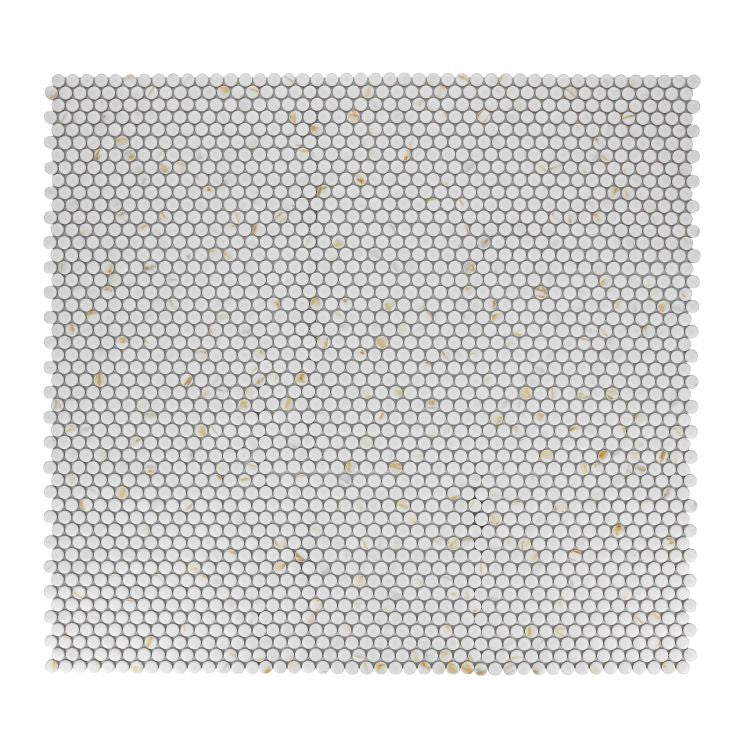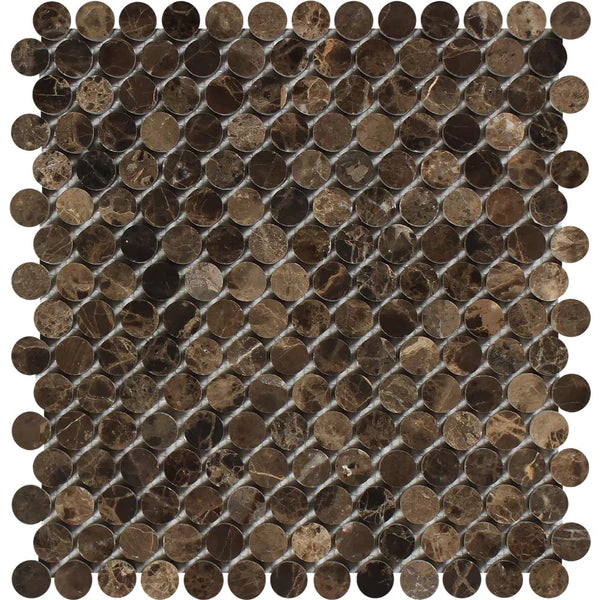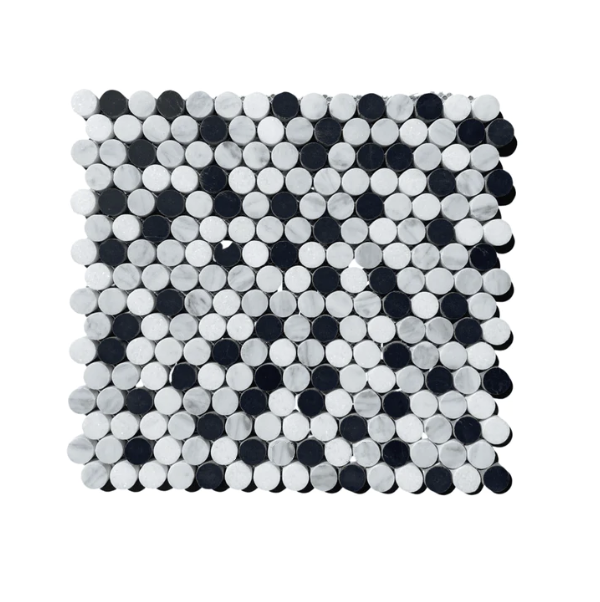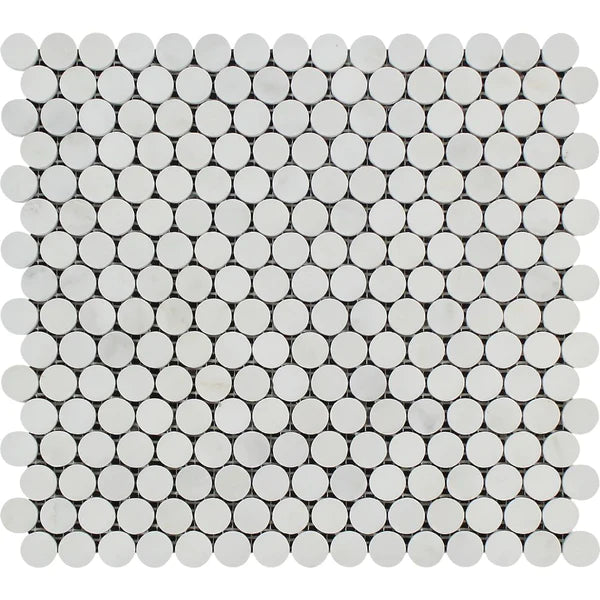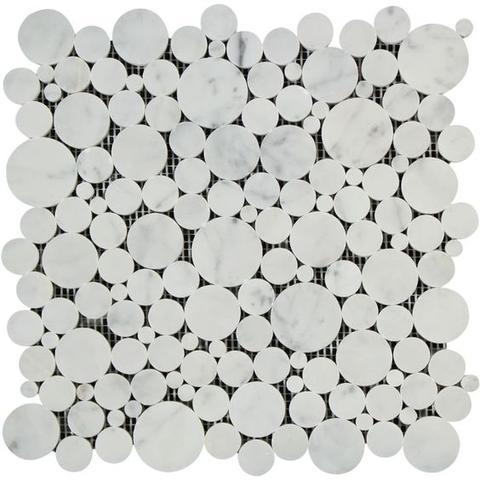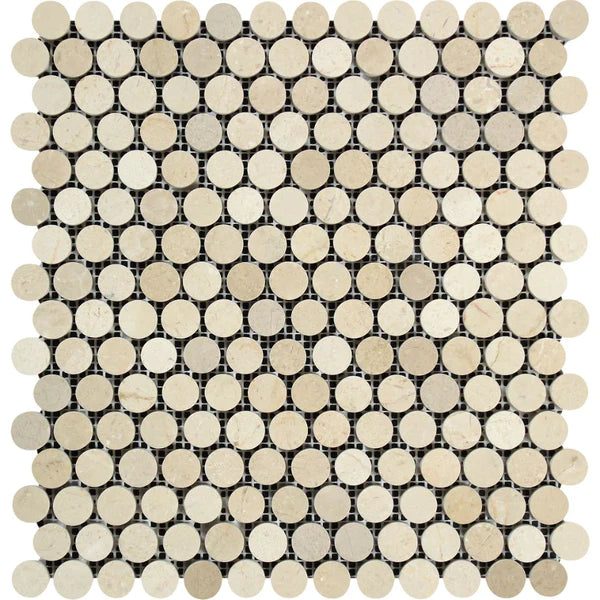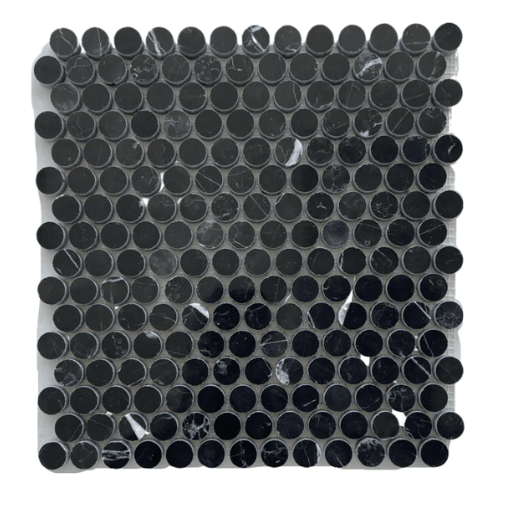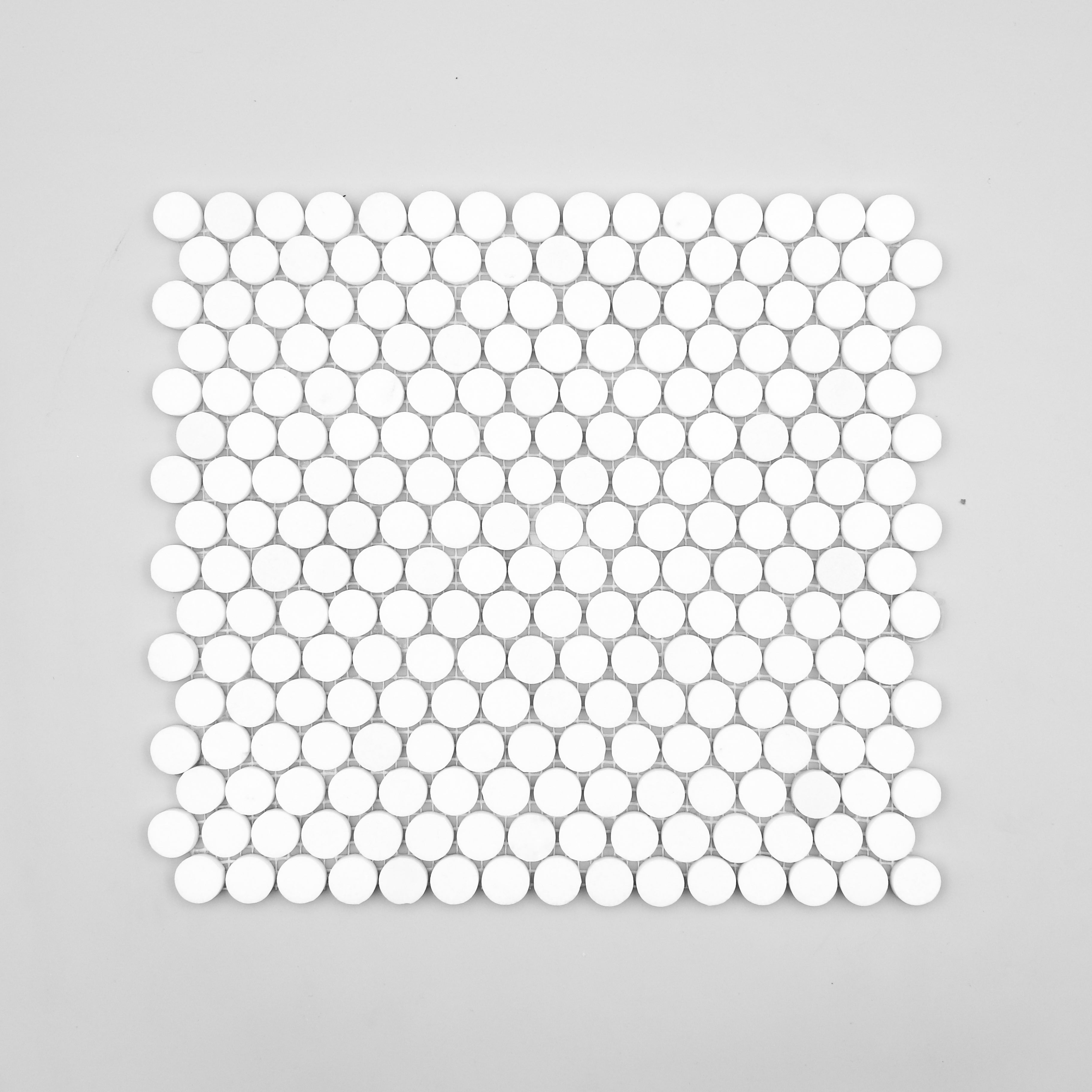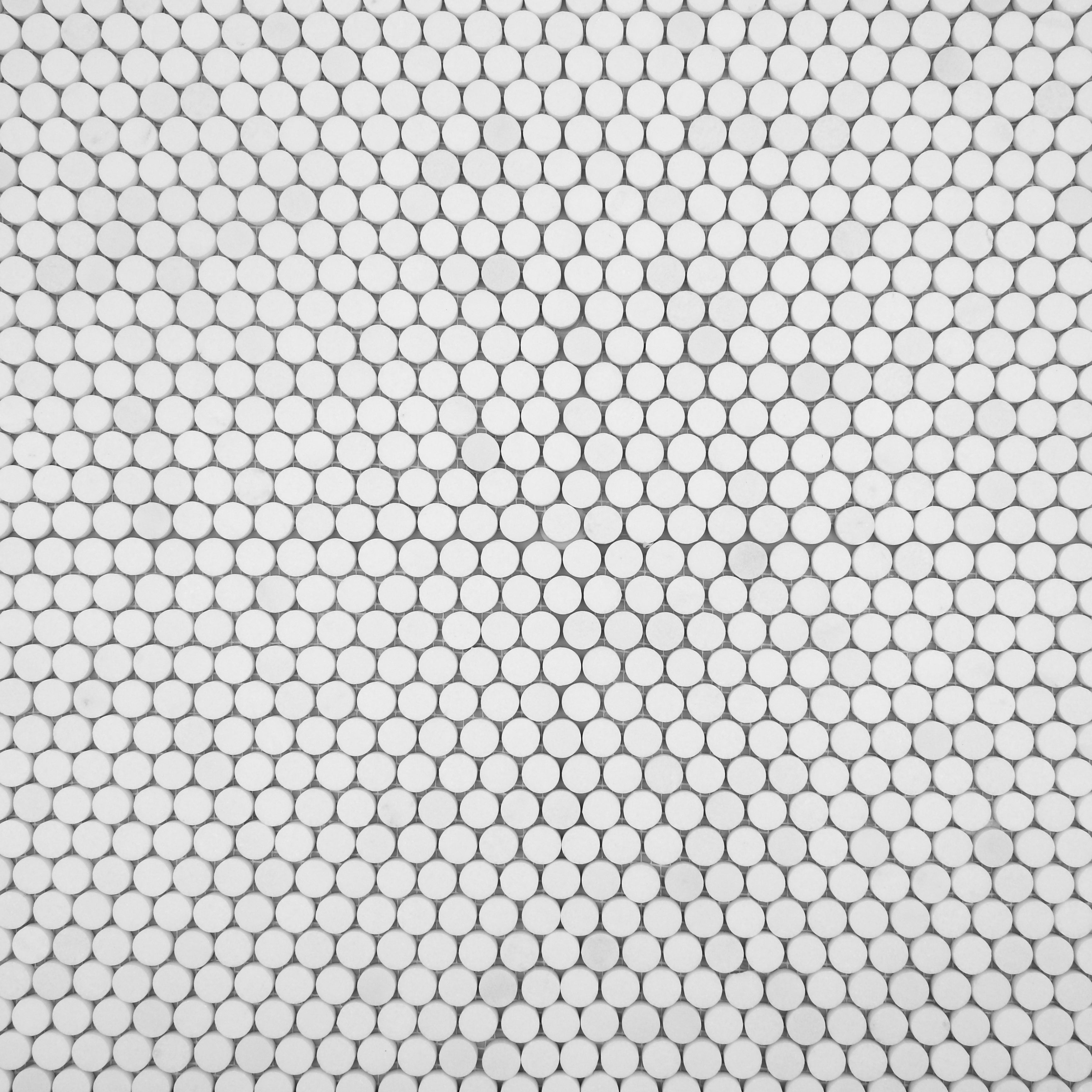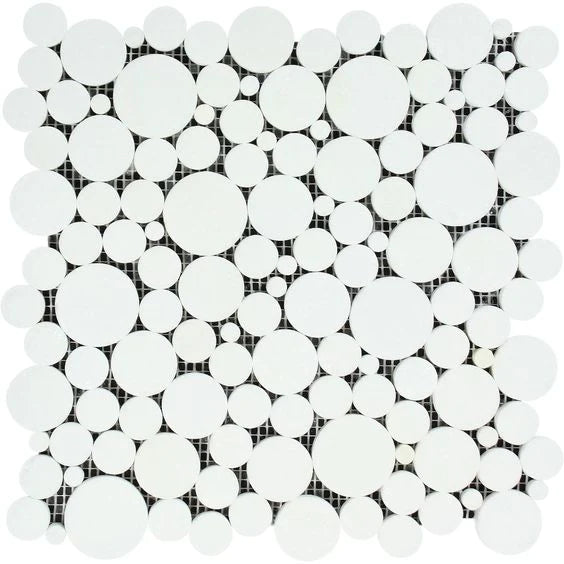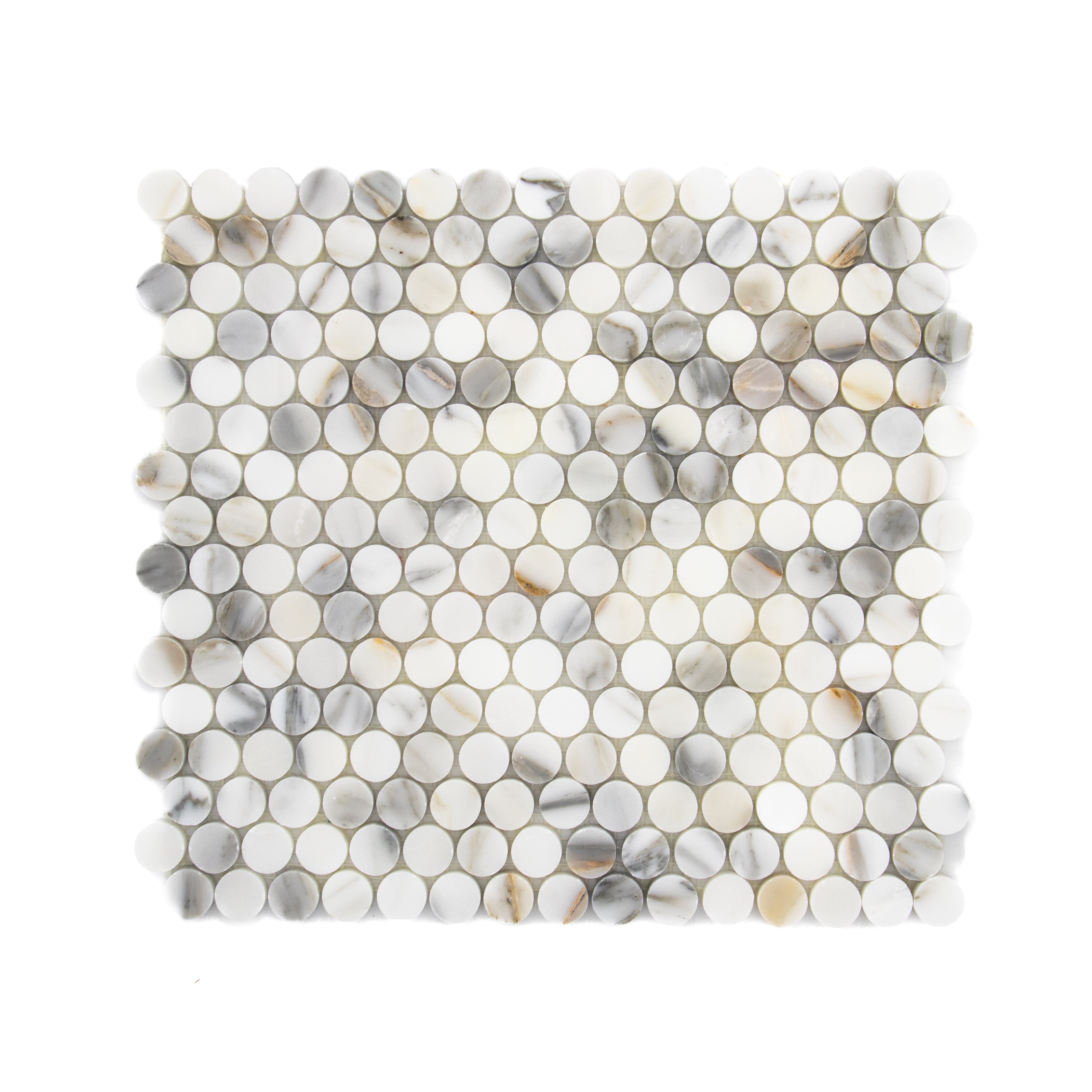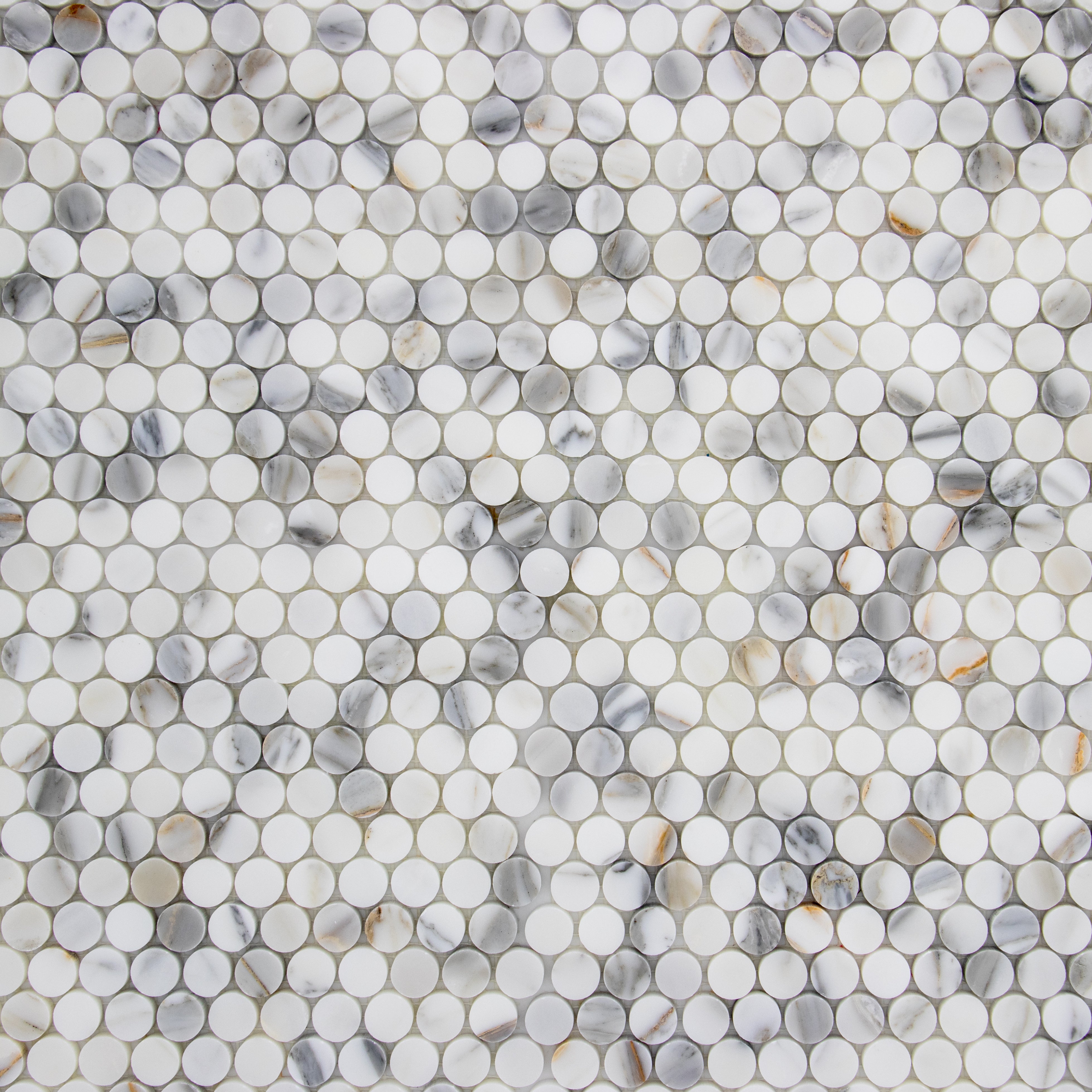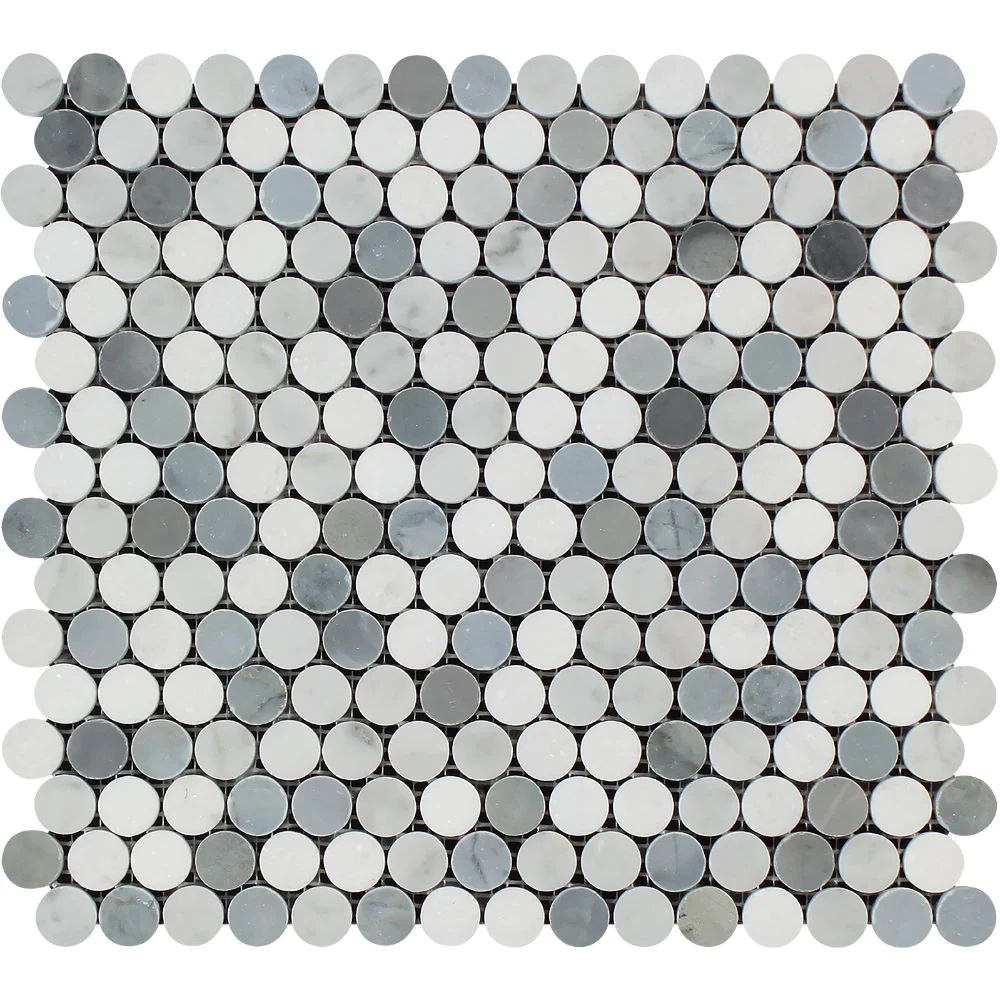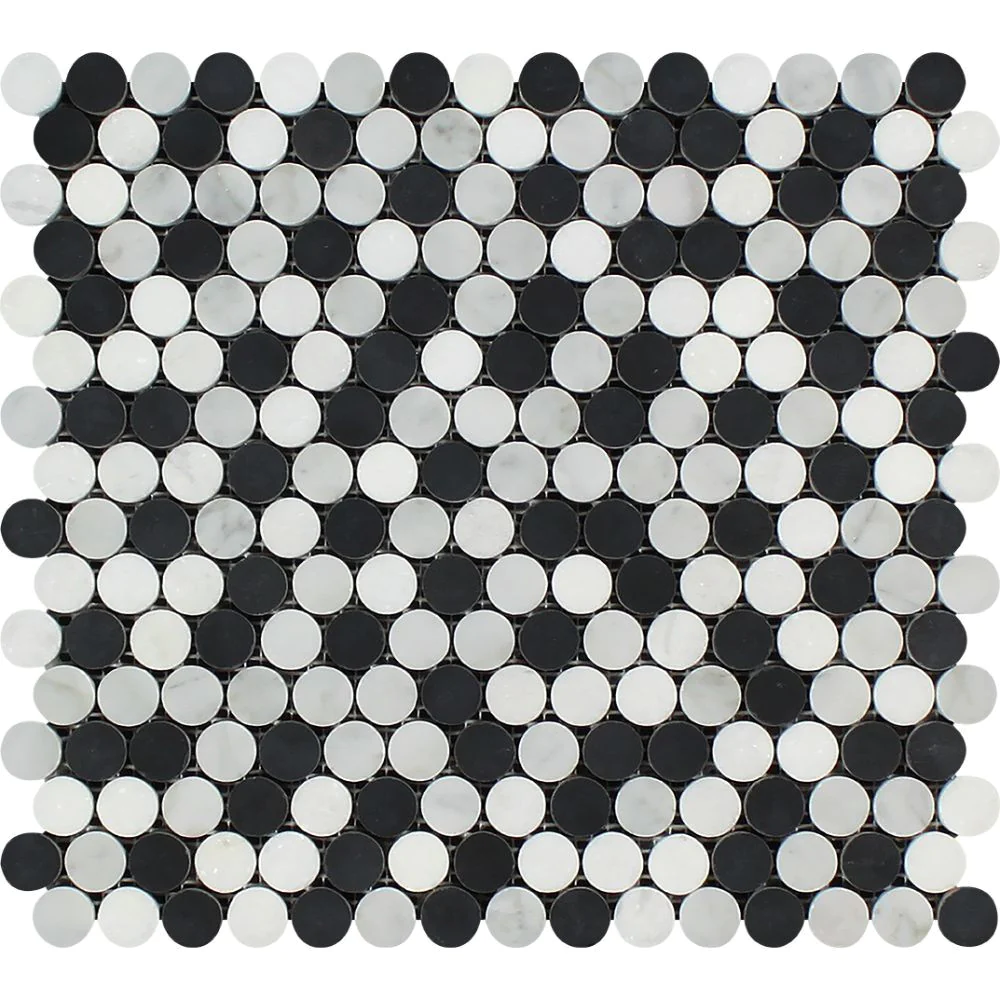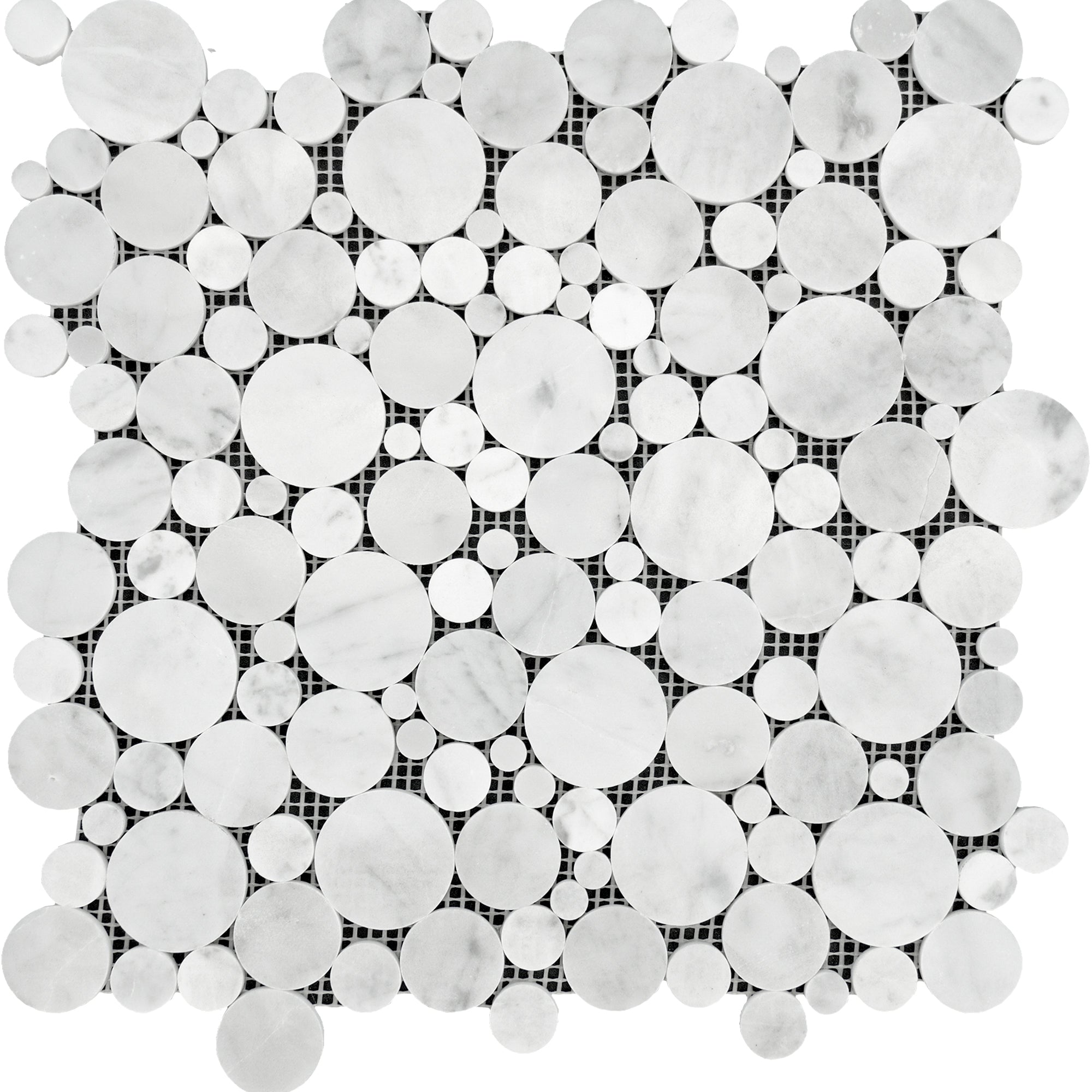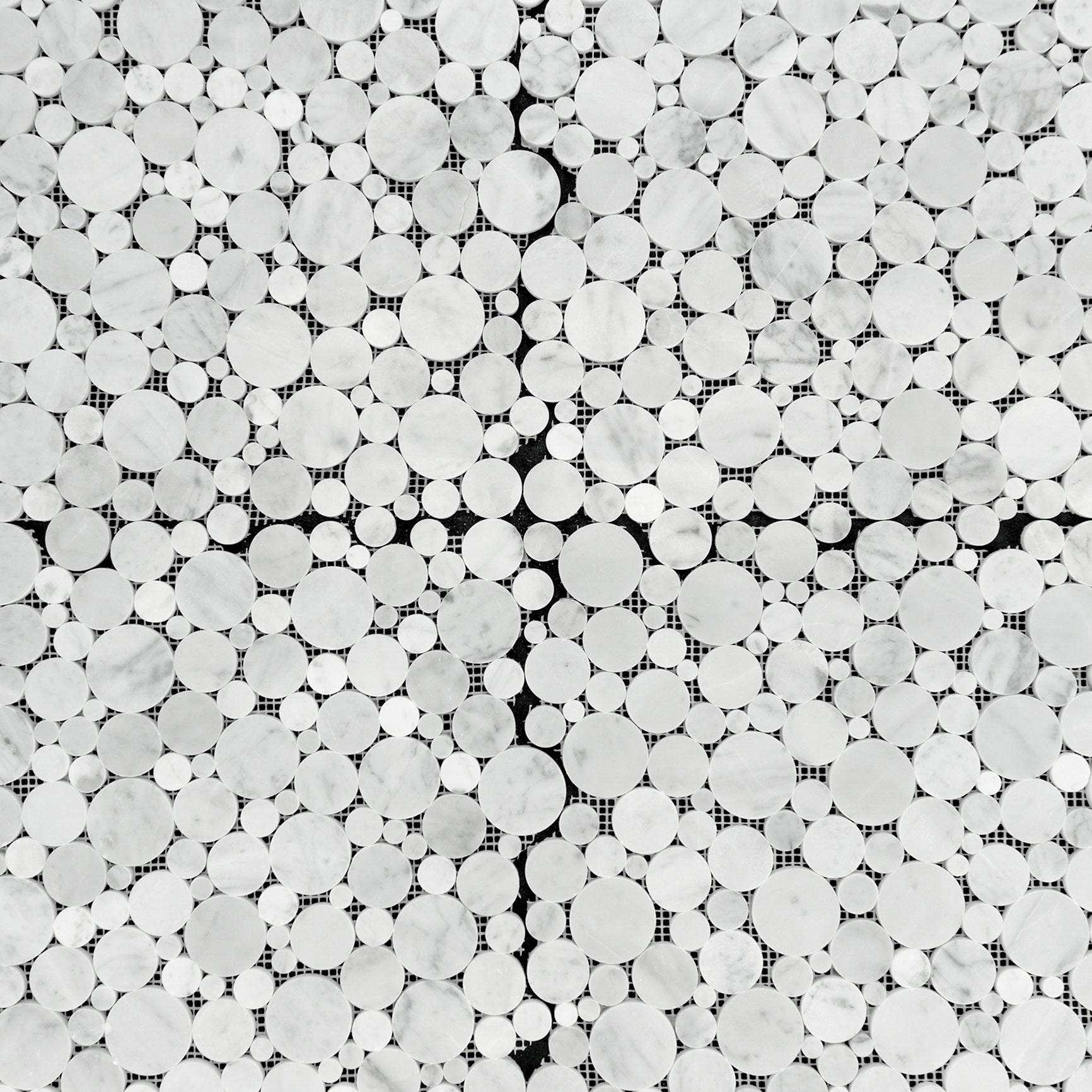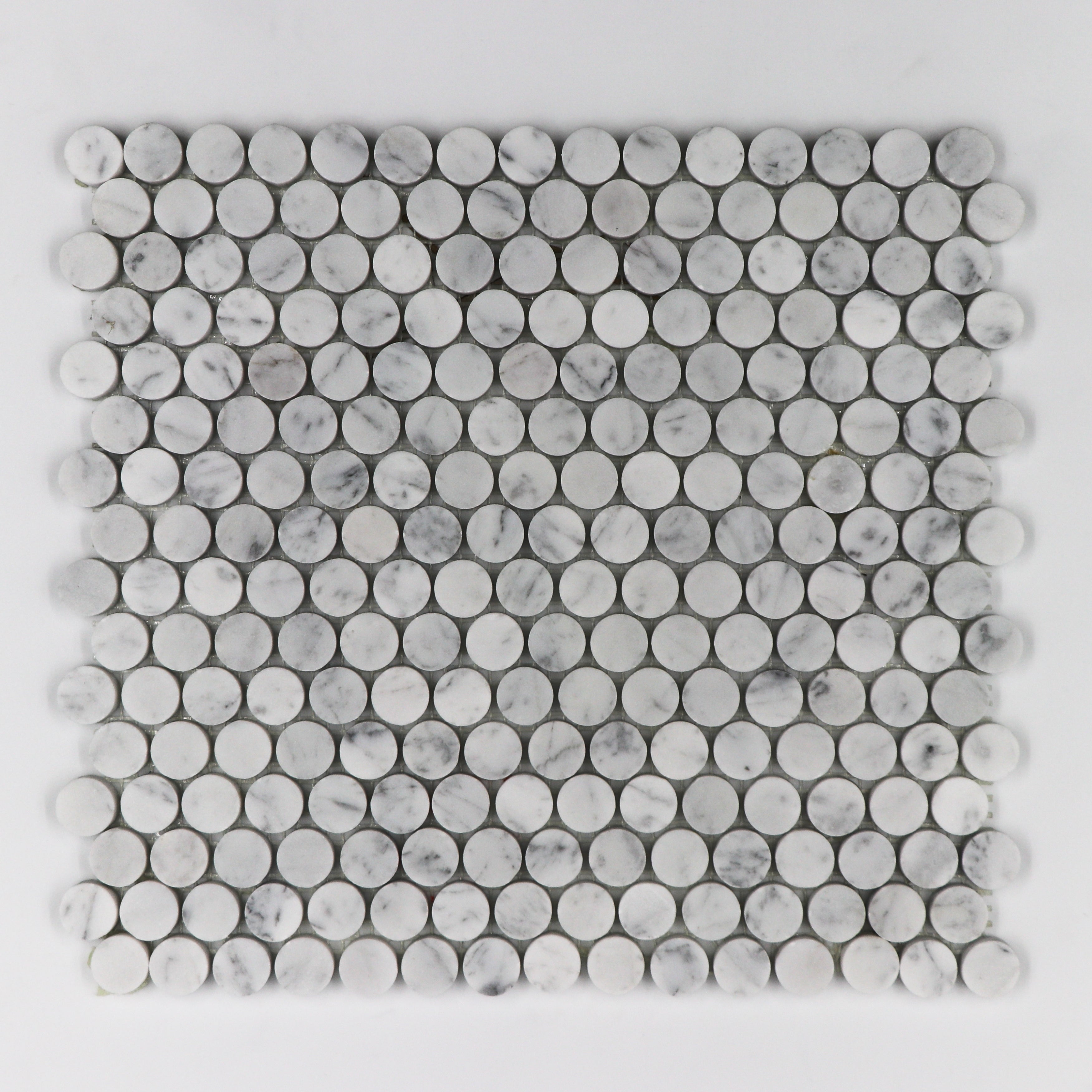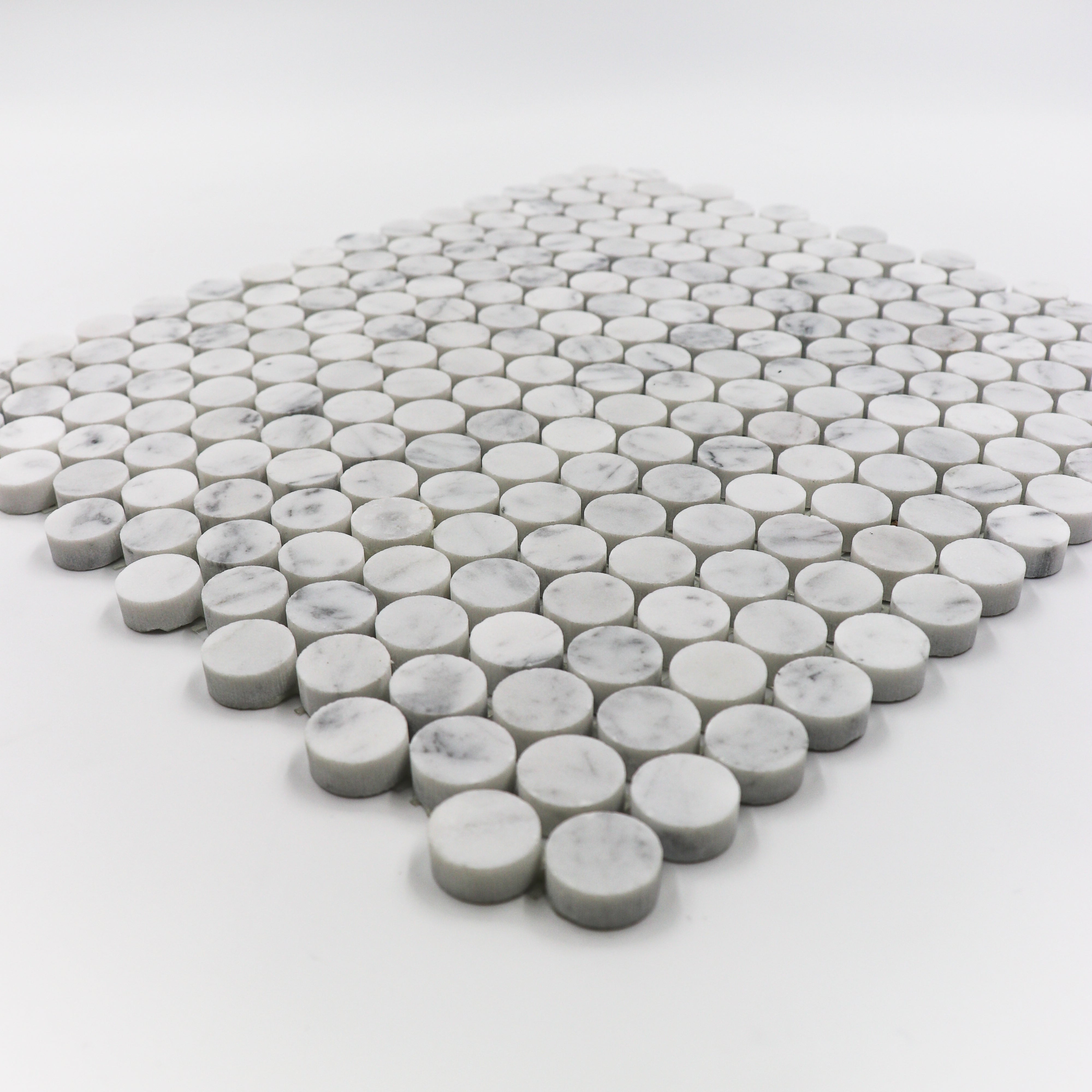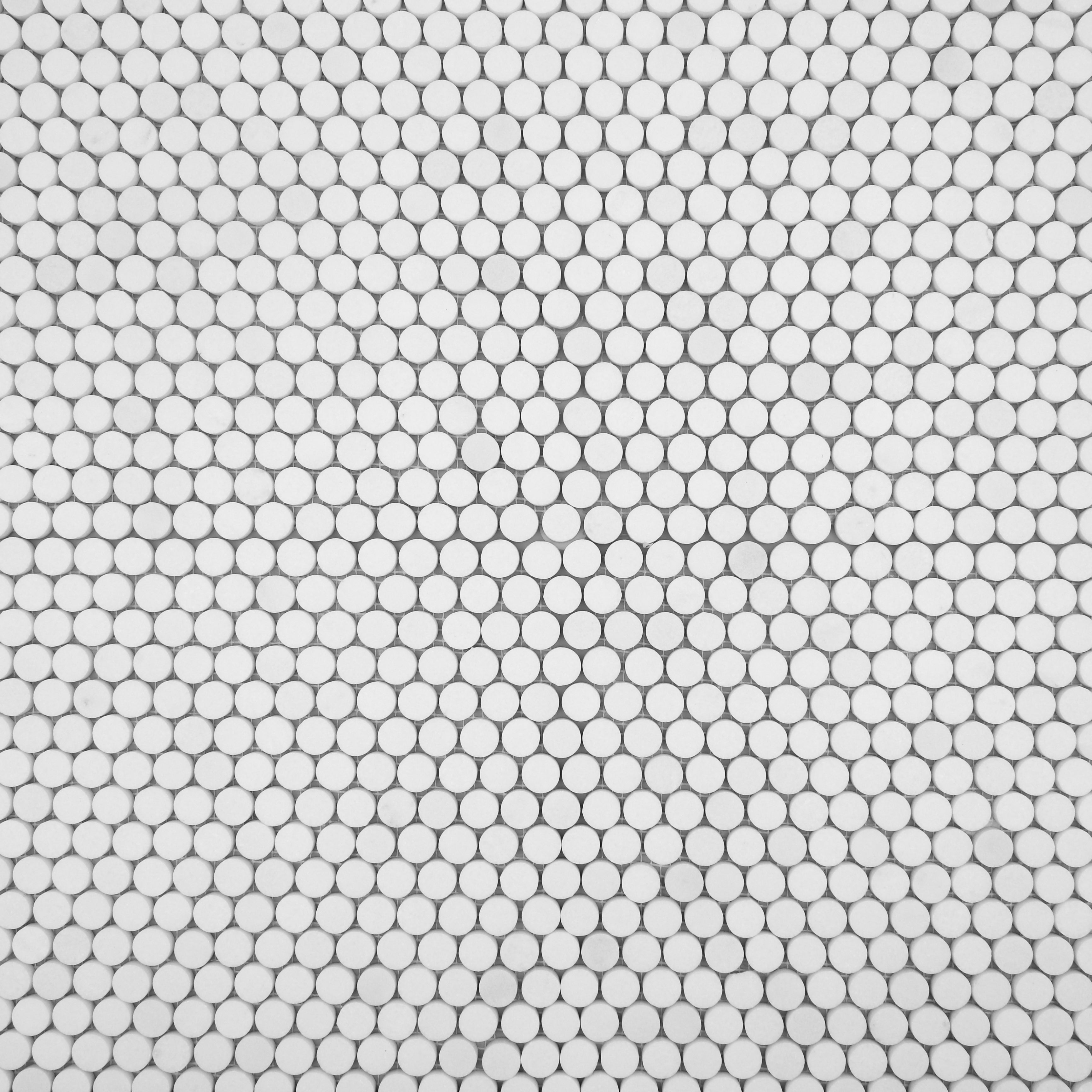
Charming Penny Round Tiles for Unique Designs
Penny round tiles feature stunning designs making them a unique fit for every space. The polished look of penny tiles from MosaiCenter gives elegance to every room. Their small round shape is eye-catching and enriches the pattern and thickness of the interior.
The tiles come in a number of different materials including glass, ceramic, porcelain, and natural stone which allows their use in modern and classic designs alike. Their strength makes them beautiful for a long time, whether as a penny tile backsplash in the kitchen or as penny floor tile in more heavily used spaces.
Penny round tile bathrooms offer more than just style—their strength and resilience make them ideal for moisture-prone areas. Additionally, penny backsplash designs add a charming yet functional element to walls, while floor and decor penny tile selections provide diverse penny tile designs for customized interiors.
At MosaiCenter, every penny tile goes through a detailed inspection and refining process to ensure precision in design and beauty, upholding our greater value promise.
Filters
22 products
Why Penny Round Tile from MosaiCenter is a Charming and Versatile Design Choice?
Whether it's a residential or commercial setting, MosaiCenter's penny round tiles are appealing and beneficial. The circular design is attractive and very eye pleasing but more importantly, the tiles can be made from a wide range of materials that promise strength. MosaiCenter's design ingenuity and variety of finishes guarantee the highest level of customer satisfaction as the tiles can be used in almost any area and on any surface.
These are some of the incredible features penny round tiles offer at MosaiCenter, making them the number one choice for forward thinkers:
- Endless Versatility: The distinctive small, circular pattern invites sophistication while creating a dynamic atmosphere.
- Diverse Application: Perfect for use in floors, walls, and decorative features in a wide variety of environments.
- Long Lasting: Good quality materials like ceramics, porcelain, glass, and natural stones resist conditions of high usage, ideal for busy locations.
- Different Textures: Provided in honed, polished, matte and glossy for different styles and designs.
Secure payment
Secure and hassle-free payment options to ensure your transactions are protected and worry-free.
Hassle-free returns
Enjoy hassle-free returns with our simple and convenient process, ensuring your satisfaction every time.
Concierge Service
Personalized assistance tailored to your needs, providing seamless convenience and exceptional service every time.
Quick delivery
Enjoy fast and reliable shipping, ensuring your orders arrive quickly and hassle-free every time.
(FAQs) Frequently Asked Questions
What is a penny round tile?
Penny round tiles are small, circular tiles of a size and shape similar to that of a penny. When treated as penny tiles, they are usually arranged in an interlocking fashion and sometimes as sheet-mesh-backed; therefore, it gives an inconspicuous but gorgeous pattern. Penny round tiles also come in so many materials, such as ceramic, porcelain, glass, and natural stone, which makes them adaptable to numerous design styles from vintage to modern interiors.
Are penny round tiles hard to clean?
Penny round tiles are relatively easy to clean. Since they are small and there are lots of grout lines, maintenance must be done regularly. The real challenge comes from the grout lines which, in high-traffic areas such as bathroom floors, kitchen backsplashes, and bathroom walls, trap dirt and moisture. With daily care, however, these tiles can still be kept beautiful and easy to maintain.
How to cut a penny round tile?
Cutting a penny round tile requires precision to keep its curved design and pattern. Here's how to do it right:
Mark the cutting line: Use a pencil or marker to outline the area that will need cutting. Use a straightedge or template to ensure that your lining is accurate.
For cutting, use a tool depending on material type:
For ceramic and porcelain penny tiles, a wet tile saw with a diamond blade is the most appropriate option for clean cuts.
For glass penny tiles, a manual tile cutter or nippers for glass tiles will serve the purpose better since they do not chip the material.
Natural stone penny tiles do extremely well with a wet saw to make precise cuts.
Cut cautiously: Slowly feed the tile number into the wet saw while ensuring that there is no more movement of the tile to secure alignment.
Slight adjustments: Use tile nippers for small alterations along edges or curves.
Finally, smooth out the edges: After doing the cut, make use of a tile file or sandpaper to smoothen rough edges for a smooth finish.
When used with the support of correct tools and techniques, clean cuts can be attained to ensure a seamless penny tile installation for a backsplash, floor, or an accent wall.
What is the best grout for a penny tile?
Generally, the most suitable grout for penny tile is an unsanded grout. It is easier to work with the tight spaces of penny tiles and less likely to scratch the surface of the tiles as compared to other types of grout. Moreover, the small grout lines between the tiles does not prevent them from being filled in.
Important notes for selection of grout with penny tile:
Sanded vs. Unsanded: For most penny tile installations, unsanded grout is better because sanded grout has a tendency to let the larger pieces of grout mix to form an unsightly joint.
Color: Choose a color not only that goes well with the tile, but also serves the purpose that you want.
Type: Pre-mixed can provide the uniform color and ease of application that is sought after.
What trowel to use for a penny tile?
The best trowel for a penny tile is the 3/16 inch x 5/32 inch V-notched trowel. That size of notch is small enough to grab a modest amount of thinset, which makes it possible for the little tiles to stick without a lot of squeeze-out getting pumped between them, yet still large enough for the small amount of thinset to be captured.
Important observations for a trowel for penny tile:
Small V notches:
Penny tiles are so small that there is a need for a notched trowel so as to not allow too much applied thinset/cement between the joints. Thinset is cement consisting of dry cement mixed with additional additives to improve its properties.
Preferred orientation:
A notched trowel that is v-shaped is ideal for small tiles such as pennies, quarters, dimes and dollar bills because it allows for an even distribution of the thinset.
Check manufacturer's instructions:
Always confirm whose tile you are using, because it is critical to follow the tiler's instructions regarding the appropriate trowel size to use with each particular penny tile.


